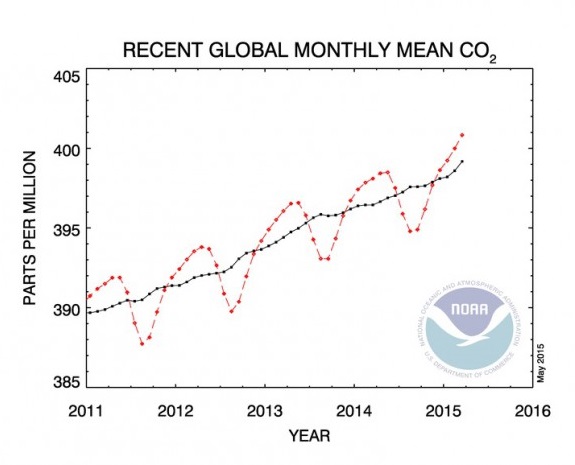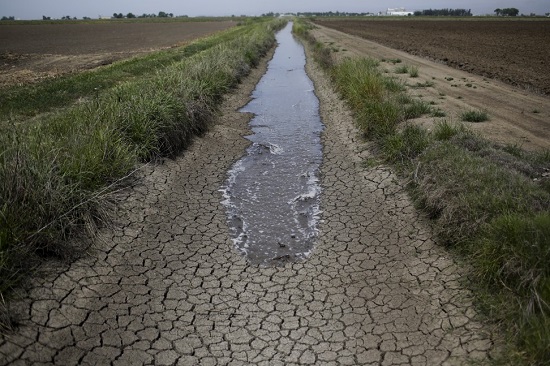1. Quiggin reckons Tesla battery can solve climate change
Actually I read it first in a Google feed. The world has noticed. Quiggin on the new Tesla home battery system:
-
Assuming the Tesla system comes anywhere near meeting its announced specifications, and noting that electric cars are also on the market from Tesla and others, we now have just about everything we need for a technological fix for climate change, based on a combination of renewable energy and energy efficiency, at a cost that’s a small fraction of global income (and hence a small fraction of national income for any country).
We don’t need radical economic changes which will entail the end of industrial society/capitalism as we know it or nuclear energy on a massive scale.
See also his:
We looked at the Tesla battery as such last week (see item 3).
2. Bjorn Lomborg think tank cancelled
- The University of Western Australia has cancelled the $4 million contract for a think tank spearheaded by controversial Danish academic Bjorn Lomborg.
The Australian Consensus Centre was going to be set up with the help of a $4 million Federal Government grant, but University Vice-Chancellor Paul Johnson last night said the proposed centre was untenable and lacked academic support.
The Education Minister Christopher Pyne has told newspaper journalists he’s seeking legal advice about the University’s decision to hand back the funding, but he says he’ll find another University to host the Consensus Centre.
Pyne and human rights commissioner, Tim Wilson, have objected to the university’s action on the grounds of free speech and censorship. Universities are about quality, not any old rubbish! Graham Readfearn looks at Lomborg’s economics and climate science, and finds both problematic, to say the least.
3. Maurice Newman ventilates on climate change
Maurice Newman is a former chairman of the Australian Stock Exchange, Deutsche Bank, the Australian Broadcasting Corporation and a former chancellor of Macquarie University.
Since September 2013 he’s also been the chairman of the Prime Minister’s Business Advisory Council.
- The Prime Minister’s top business adviser says the United Nations is trying to use the fear of climate change to orchestrate an anti-freedom, anti-capitalist new world order.
In an article in The Oz he urges Tony Abbott not to listen to the UN and resist attempts to get Australia to sign a climate treaty. But:
- The Australian Chamber of Commerce and Industry has distanced itself from Mr Newman’s comments and so has the Federal Environment Minister Greg Hunt.
Sensible. I’m with David Karoly. Maurice Newman lives in an alternative reality.
4. “It’s crazy to think that 2 degrees Celsius is safe limit”
David Spratt tells us that James Hansen told ABC Radio National Breakfast that “its crazy to think that 2 degrees Celsius is safe limit.” For example:
- We know that the prior interglacial period about 120,000 years ago – it’s called the Eemian – was less than 2 degrees C warmer than pre-industrial conditions and sea level was a least 6 to 8 metres higher…
- The ice sheets are losing mass faster and faster with a doubling the of [ice loss] about 10 years. If that continues, we would get sea-level rises of several metres within 40 to 50 years.
Back in 2011 Hansen said that the notion that 1.5°C is a safe target is out the window, and even 1 degree looks like an unacceptably high risk.
What is lacking in the politics of climate change is the notion of a safe climate. The IPCC processes are normalising 3°C as the best we can do.
See also The folly of two degrees.
5. Global CO2 levels average more than 400
During the northern summer of 2014 NOAA’s Mauna Loa observatory in Hawaii averaged above 400 ppm for several months in a row. Now, for the first time, the global average has topped 400 ppm for a whole month in March. Here’s the global graph:

For March the figure was 400.83 ppm, on May 4 it reached 403.90 ppm.
6. California drought could change food market
The drought in California could be the worst for 1200 years. If it continues it could upend the entire American food system, and even affect prices in Australia.
The Sierra Nevada Mountains supply a third of the state’s water. Last season the snowpack was 8% of the yearly average.
Governor Jerry Brown has mandated that urban water agencies reduce usage by 25%, but he has allowed agriculture, which uses 80% of the water, to carry on regardless.

Problem is the water is being used unsustainably. Groundwater resources in some areas are over-extracted by 80 per cent, with aquifers falling by 60 feet each year.
The scale is enormous:
- Californian irrigators used 28,986 gigalitres a year, compared to about 11,060 gigalitres in Australia.
This was used to produce up to $31 billion worth of irrigation produce each year, compared to Australia’s $13 billion.
A continued drought in California could disrupt the American food system and have ripple effects elsewhere.


The first link in the Quiggin/Tesla article had been incorrectly inserted, Now corrected. Here it is.
Once again Brian you pick the issues well.
I’m 100 percent behind Quiggins thinking. Musk has delivered an excellent product profile at a workable price. The 2 kilowatt output is ideal for maintaining a household’s lighting and connectivity. Not enough for cooking, but then should be done with gas, preferrably gas from gassified cellulosic municiple waste.
WA University has made a wise decision in rejecting Lomborg and Pyne. Typical that Pyne would cite “free speech” as the basis of his derision. It is not “free” speech if the government is paying for it to occur. Pyne cannot claim that Lomborg’s theme is art or necessary cultural support. It is just flat out Libertarian propaganda. I paused with that thought to check as I have not actually heard Bjorn Lomborg’s message. So I listened
https://youtu.be/7nbJKeCiVfA
….and I hold to that view. Lomborg suits the Maurice Newman message of Climate Change is a distraction and “saving the poor” is great PR so how can we look like we are doing something without wasting money doing it. You might get a different message from the talk, but that is what I hear. Then Bunker Roy drives the point home that real solutions for the poor come from the bottom up. The government’s grant for Lomborg should go directly to the Barefoot College, and that way more will be done by Australia for the poor than has been achieved in the last ten years, without the BS.
California is really in danger. Dipping heavily into artesian reserves is a massive problem with undefined consequences. It is the problem of a wastefully consumption driven world.
Lomborg argues that he believes he can achieve 32 to 1 dollar performance with his targetted economic techniques. Bunker Roy of the Barefoot college already achieve greater than that dollar impact in practice, now, every day. Theory and actual practice. Lomborg’s argument apeals to the self delusion of the LNP that they are good managers of money, and so they are prepared to throw money at an idea.
Lomborg’s 4 million dollars in the hands of Bunker Roy on the other hand will achieve greater than 128 million dollar of benefit educating Africans households how to solve their own needs for energy, education, work and better living conditions. It is an easy decision to make.
BilB
I had to look up Bunker Roy (TED) as I hadn’t heard of him, and thank you very much, a gem of a person.
I must say that he looks the classic Libertarian.
Everyone equal, effort and ingenuity over credentials or birthright , waste bad, philanthropy and self motivation over tax and spend. Minimal Government involvement. Individualism and their rights and freedoms at the forefront to raise the standard of the whole.
More power to his elbow.
Yes, Jumpy, Bunker Roy, many wonderful traits he has, plus one more,……. empathy. A Libertarian qaulity, it is not.
John Quiggin is right on the money – but I’m not sure that “the end of industrial society/capitalism as we know it ” mightn’t be such a bad idea after all. We’ve all managed to get by pretty well without Feudalism, Slavery, Theocracy, Fanatical Cults and Communism: I’m sure we would be able to manage rather well without Capitalism too . There is a definite need for an economic and social system that works well and with the minimum of harm – but Capitalism has failed to do either; so, time to give it the heave-ho and get on with replacing it with something more efficient.
Here is an interesting article link c/- the jonovian negativity mill (it occurred to while reading this CC thread that the novasite is built entirely on hate, and hate is a powerful motivator)
http://spectrum.ieee.org/energy/renewables/what-it-would-really-take-to-reverse-climate-change
The conclusion that a distributed energy production system is the best answer is pretty much what we have been talking about here for a very long time.